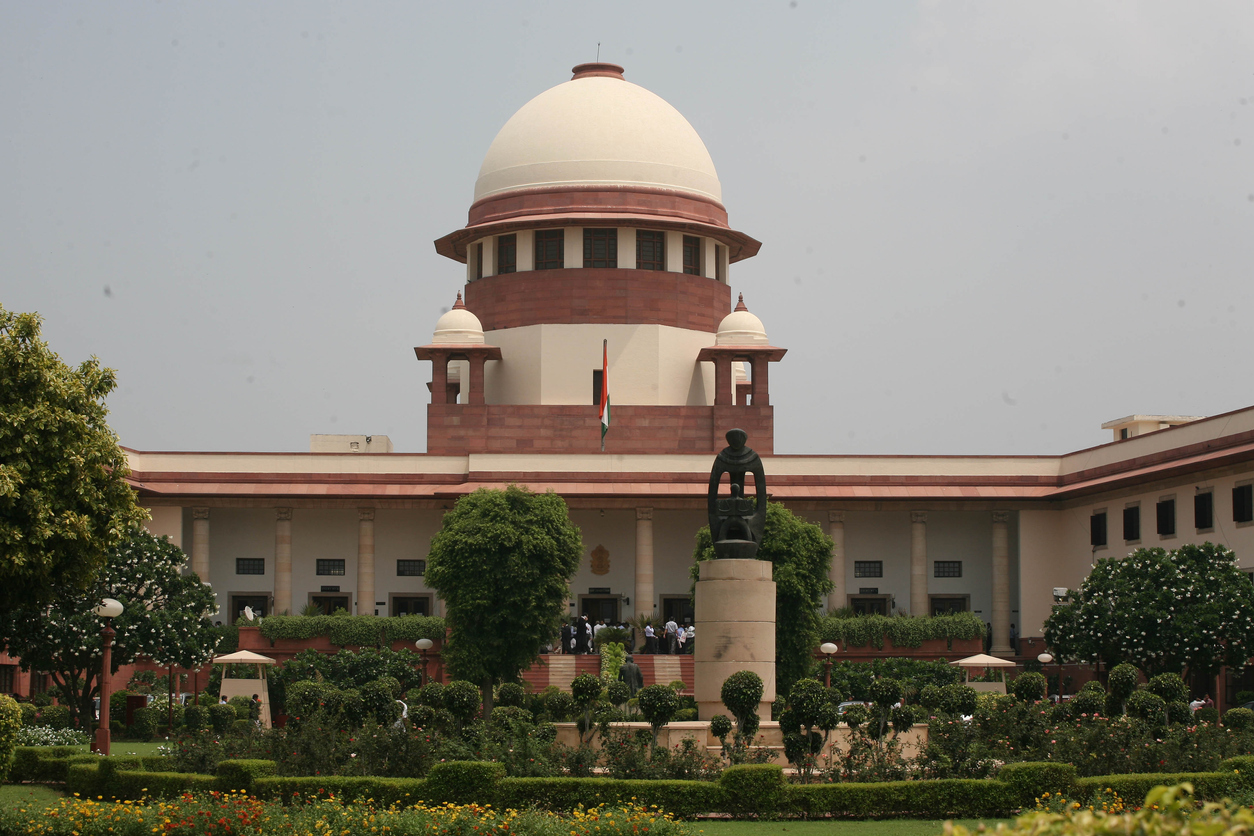
On the Supreme Court’s recent appointments: Pragmatism Wins over Idealism
Chief Justice Akil Kureshi’s exclusion by the SC Collegium should continue to be questioned
This is a guest blog.
On August 26, 2021, in what can be termed as a historic move, the Hon’ble President of India gave his assent to elevate a record number of 9 judges to the Supreme Court of India. Unlike several delays by the Centre in the past, the recommendation for elevation by the Collegium as well as the assent by the President – on the aid and advice of the Union Government – was completed within a week’s time.
This list of judges included the likes of Chief Justice A. S. Oka (Karnataka High Court) who is well known in legal circles for defending the independence of the judiciary and holding the government accountable, so much so that the 2017 Maharashtra Government accused him of bias against the state, but later went on to tender an apology.
Therefore, these appointments are a welcome move in the interest of justice and accountability. In spite of these good tidings, the non-elevation of Chief Justice Akil Kureshi from the Tripura High Court, even after his being second on the seniority list of High Court judges, serves as a grim reminder of the political cost of judicial independence.
Article 124 and 127 of the Constitution of India that provides for the process of appointment of judges to the higher judiciary requires the Union Government to consult the Chief Justice while making the appointments.
However, this process has not been without any friction. The friction between the office of the Chief Justice of India and the Union Government dates back to the 1990s when not a single proposal forwarded by the then Chief Justice of India (CJI), M. M. Punchhi was cleared by the then Law Minister, Thami Durai. Cut to 2016, the CJI T. S. Thakur wept as he expressed his helplessness in being unable to fill judicial vacancies because the government was “sitting on” decisions of judicial appointments. Thus, even as we laud the elevation of nine judges by the Collegium, the compromise regarding Justice Kureshi undermines this move.
The run-up to Justice Kureshi
It is a well-known fact that the Centre is averse to clearing names of those judges/candidates for elevation who are fiercely independent. Some prominent examples include the repeated blocking of Justice K.M. Joseph’s elevation to the Supreme Court of India (quashed the President’s rule in Uttarakhand in 2016), the non-elevation of Senior Advocate Aditya Sondhi to the High Court of Karnataka (spoke against the Citizenship Amendment Act) at public forums), and the vicious campaign against Senior Advocate Gopala Subramanium’s (UPA era Additional Solicitor General) elevation to the Supreme Court, which led to him withdrawing his candidature altogether.
In a similar vein, Gujarat High Court judge, Justice Kureshi, who had sent the then Home Minister of Gujarat (and now Union Home Minister), to police custody in the Sohrabuddin Sheikh encounter case in 2005, has faced hurdles. In 2019, a Public Interest Litigation was filed by the Gujarat High Court Advocates Association to delay Justice Akil Kureshi’s appointment as the Chief Justice of the Madhya Pradesh High Court. Eventually, the Supreme Court Collegium and the Union Government settled to break the deadlock and appointed Justice Kureshi to the Tripura High Court as its Chief Justice. In the Indian context, it can be safely said that the transfer of a judge to a smaller High Court is often considered a punitive measure. For instance, to quote a parallel, in 2010, when allegations of corruption were levied against Chief Justice of Karnataka High Court, Justice Dinakaran, he was transferred to the Sikkim High Court. Similarly, in 2019, Chief Justice V.K. Tahilramani of Madras High Court, who was allegedly unable to carry out her duties efficiently, was transferred to the Meghalaya High Court “in the interest of better administration of justice”.
In the case of Justice Kureshi , the Union Government fought tooth and nail to prevent his appointment to the Madhya Pradesh High Court. However, it did not have to lift a finger when it came to the non-elevation of Justice Kureshi to the Supreme Court. The tacit acceptance of political hegemony by the Supreme Court Collegium questions the roots of judicial independence.
Conclusion
The Collegium not recommending Justice Kureshi for appointment to the Supreme Court despite him being second on the seniority list, to seemingly avoid friction with the Union Government, will keep the debate on judicial independence and the need for Collegium reforms alive. In the battle between pragmatism and idealism, pragmatism has won to favour numbers (elevation of a record 9 judges) at the cost of Justice Kureshi. It is a compromise that must continue to be questioned if we are to safeguard the principles of judicial independence as a key pillar of constitutional democracy.
All views are personal.
